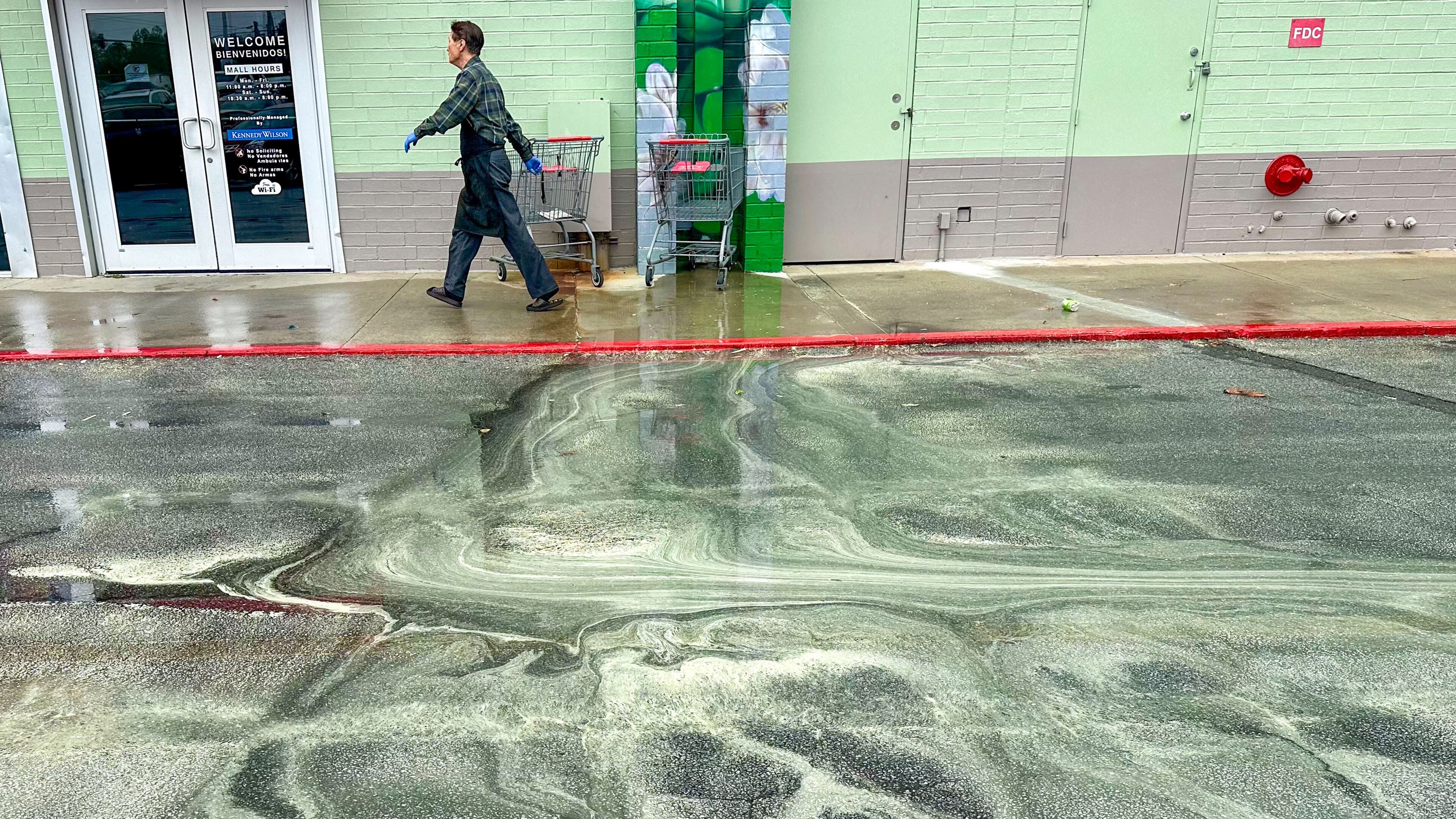Pollen is near record levels. Doctors advise how to exercise outdoors now

As Atlanta’s pollen levels have swirled to near record highs this week, anyone who exercises outdoors may be feeling like their allergies are an even bigger challenge than the workout.
According to Atlanta Allergy & Asthma, the official pollen and mold measurement station has recorded tree pollen and mold at extremely high levels this week. Tuesday’s overall pollen level of 8,740 was the third highest on record. The blustery weather has only intensified the problems.
But doctors say runners preparing for the Atlanta Journal-Constitution Peachtree Road Race, and others engaging in outdoor sports, can take steps to make exercise easier on the lungs.
Watching the weather before going outside is a key step. Windy, dry days make for the highest levels of pollen. But a spring rain can wash the pollen out of the air — temporarily.
“Exercising after rain or even during light rain will make for better air,” Pedro Lamothe of the Emory University School of Medicine Division of Pulmonary, Allergy, Critical Care and Sleep Medicine, told The Atlanta Journal-Constitution.
When pollen combines with air pollution from cars and trucks, the result is often sniffles, sneezing, and even asthma attacks.
Researchers from Emory found that nitrogen dioxide and particulate matter from cars and trucks stuck in traffic on I-75 and I-85 surge during rush hours. Particulate pollution is made up of tiny particles of solids or liquids so small they can be inhaled deep into the lungs and enter the bloodstream, potentially causing health problems. That traffic pollution lingers, often blowing into nearby neighborhoods. But the burden is even more problematic when the pollution combines with pollen.
For this reason, Lamothe said, runners, those playing tennis, and others should avoid outdoor sports activities during rush hour traffic. “Exercise indoors too. And use allergy medications before going out.”
It’s a sentiment shared by Christopher Chu, a doctor with Atlanta Allergy & Asthma.
“Pollen and pollution can combine, and that can contribute to adverse health effects,” he told the AJC.
Chu recommends athletes turn to second-generation antihistamines, like Zyrtec, Claritin, or Allegra. He suggested that patients avoid first-generation antihistamines like Benadryl, which have been linked to early onset dementia.
In addition to the possible dementia risk of first-generation antihistamines, Chu said they may also cause drowsiness “and this won’t allow people to get in a good workout.”
Lamothe of Emory agreed: “If you’ll be at the gym or running on a treadmill, you need to make sure your senses are as sharp as possible, so it is wise to avoid drowsiness.”
Jason Carver, a master trainer and owner of Dreambody Training in Kennesaw, which caters to individuals over 55, said he tells clients to train indoors this time of year and use nasal sprays to avoid congestion.
But when outside, he says athletes should remember not “to push past a threshold that the body can handle.”
“If we do that too often, or too many days in a row, oftentimes we will get sick and go into physical regression,” Carver told the AJC.
For allergy sufferers who still want to enjoy a relaxed walk, Lamothe of Emory says consider wearing a mask — although it’s fine for exercisers engaging in more strenuous activity to wear a mask too, as long as they can breathe comfortably through it.
“And avoid pushing through the symptoms,” he added. “That only makes it worse.”


